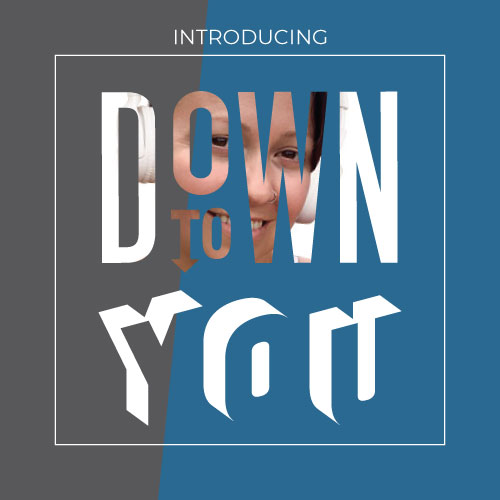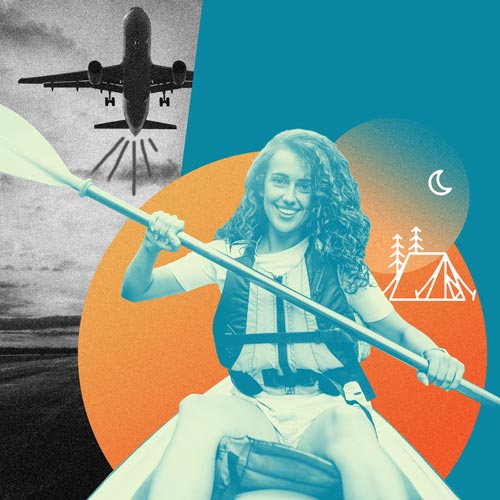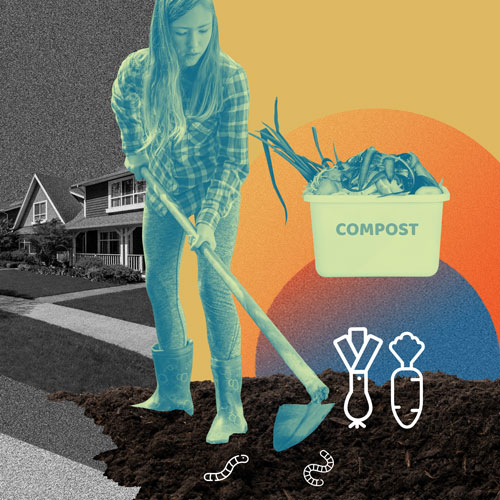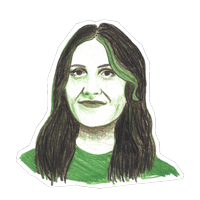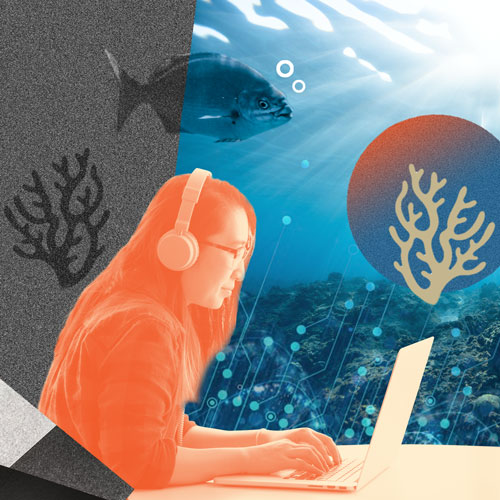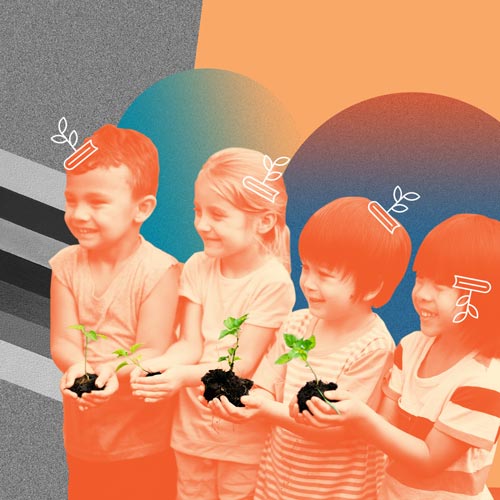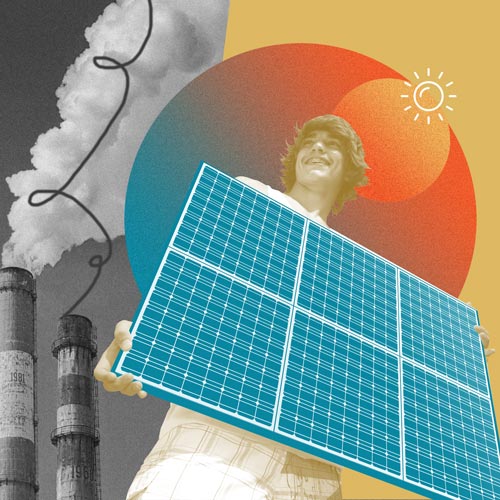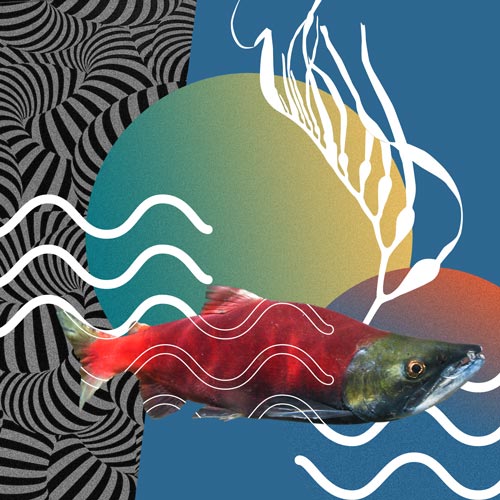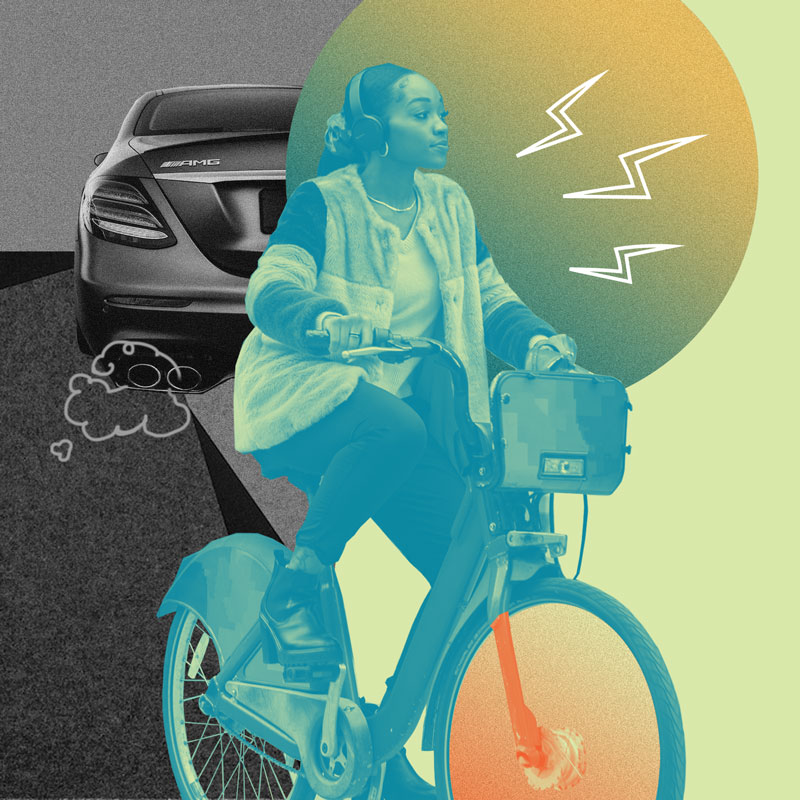DTY Podcast Episodes
What is Down to You All About
Setting the stage for understanding Net-zero and how it relates to our daily lives
In the race to Net-zero, what can individuals do to help their communities meet the challenges of the climate crisis? In Down to You, we speak with young leaders across BC on what initiatives they are undertaking where they live to reduce or remove emissions. To help situate these discussions within Western and Indigenous science, we sat down with two esteemed researchers: Janna Wale, an Indigenous policy advisor and scientist at the Canadian Climate Institute, and Simon Donner, a UBC professor working in the field of climate science.
Episode Guests
- Janna Wale
- Simon Donner
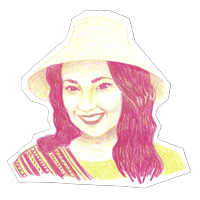
Janna Wale is Gitxsan from Gitanmaax First Nation, and is also Cree-Métis on her mother’s side. She uses a complex human-environmental systems approach in her work, and believes that this lens can be used when looking for ways to bridge western and Indigenous climate work. Janna’s research focused on climate resilience in Indigenous communities. In 2023, Janna was the recipient of the Anitra Paris Memorial Award for female youth climate leadership through Clean Energy BC, and was named as an Indigenous Trailblazer through Diversity in Sustainability.
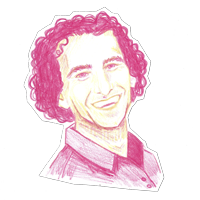
Canada’s climate plans and targets
Website that outlines Canada’s current climate plans and targets, including Net-Zero by 2050.
www.nzab2050.ca
Website for Net-Zero Advisory Body (NZAB), Canada’s first-ever advisory body dedicated to net-zero. The body is a group of independent experts appointed by the Governor in Council on the recommendation of the Minister of Environment and Climate Change.
Net Zero and You(th)
A report published by Apathy is Boring on youth understanding and knowledge about Net-Zero.
Just Transition Guide
Resource for Indigenous people and other folks looking for Indigenous-Led pathways to implementing equitable and just transition from fossil fuels to renewable energy.
Canada’s Emissions Reduction Plan Assessment
Report from Canadian Climate Institute assessing Canada’s first Emissions Reduction Plan. Assessment demonstrates the 2030 plan is comprehensive and credible, however policy must be quickly developed and implemented.
440megatonnes.ca
440 Megatonnes is a collaborative project of the Canadian Climate Institute that through exclusive data and expert insights, tracks how climate targets, plans, and policies are driving Canada’s climate policy progress.
BC Community Climate Funding Guide
BC Community Climate Funding Guide is a comprehensive list of funding opportunities for Indigenous communities and local governments to reach their climate action goals.
Carbon Toolkit
Toolkit that provides information to First Nations interested in learning more about forest offset projects. Offers five learning modules to provide nations with fundamentals of forest carbon offset project, along with overview of legal and policy landscape in British Columbia.
Climate Change Accountability Report
BC government report “Climate Change Accountability Report” which includes information on BC’s progress and actions on climate change during previous fiscal year (April 2022-March 2023) and actions underway or planned for current fiscal year (April 2023 to March 2024).
Tangible ways to manage eco-anxiety
Eight tangible ways to stay sane in the climate crisis and manage your eco-anxiety.
Nature conservation framework agreement
Article announcing signature of tripartite framework agreement to protect and conserve biodiversity, habitats, and species at risk in the province. First of its kind, framework was signed by governments of Canada and BC as well as the First Nations Leadership Council.
In Pursuit of Meaningful Tourism
Connection to land and water from Indigenous perspectives
Let’s talk about tourism. In a world focused on travel as the main form of adventure, what can a recalibration of tourism offer those of us fighting for change? How can we create more grounded, connected experiences for people wanting to experience new places? In this episode of Down to You, hear from Shaelynn Trottier in New Westminster, an artistic and active youth involved in changing the conversation when it comes to tours. Part of the Tla-o-qui-aht First Nation, Trottier works with Talaysay
Tours, an Indigenous- and woman-owned tourism company, who conduct nature walks in Stanley Park, on the Sunshine Coast and in Squamish.
Episode Guests
- Shaelynn Trottier

CREATOR SAID SWEATPANTS – Love The Land Apparel
Shaelynn Trottier is located in New Westminster and part of the Tla-o-qui-aht First Nation, Indigenous to the west coast of Vancouver Island. She is also French and Dutch. Trottier works with Talaysay Tours, offering tours in Stanley Park, on the Sunshine Coast and up into Squamish. She is an avid clothing designer and screen printer; her art often featured on products of the sister company to Talaysay, Love the Land Apparel. Trottier deeply admires the matriarchs at Talaysay that have mentored, supported and brought her back to her culture.
Cultivating Earth
Creative use for available land
How can we be creative and active in our relationship to the land? How do we create good practices to engage with the earth and each other? In the sixth episode of Down to You, we discuss how we can work together to educate and innovate how we use the land we live on. Our guests address the gaps in access to eco-friendly practices and examine how a thoughtful relationship to the planet is necessary for climate action. Hear from Katie Forsyth in Kamloops, BC, and Tessa Mckamey in Mission, BC, who share their grassroots efforts to cultivate the earth with friendly composting and regenerative farming.
Episode Guests
- Katie Forsyth
- Tessa Mckamey
instagram
Katie Forsyth is located in Kamloops, BC. One half of Friendly Composting (the other half is her best friend Claire McLoughlin), she runs a composting business which began in March 2020 when the duo noticed a gap in accessibility to residential composting within Kamloops. Forsyth and McLoughlin started with an Instagram post for friends and family, scavenged buckets from Kijiji and thrift stores, and collected compost out of the back of an SUV. They quickly grew to over 500 collections a week. Over the past 3 years, their business has grown and changed immensely. Kamloops instituted residential composting as of August 2023 and so Friendly Composting now focuses on education and composting for large events, businesses and commercial ventures, particularly restaurants.

instagram.com/farmstead.produce/
Tessa Mckamey is a farmer located in and growing out of Mission, BC. She is focused on no-till and no-spray regenerative farming, with a bedrock of grassroots practices. Mckamey quit her day job because she hated being in an office all day. She felt lost before turning to what she already knew, which was growing food. Mckamey began participating at the Mission Farmers Market and offered Community Support Agriculture (CSA) boxes for sale to her community. She is currently organizing with other farmers to gain access to and grow food on unused land in her locality.
Emerging Opportunities for Climate Action
Potential of AI to help address climate change
In our ever advancing world, there are new technologies and tools made available everyday, transforming our world and our capabilities to enact change within it. AI is one such tool, which could alter the fate of civilization and the climate. Most conversations around AI and the way it is already affecting work aren’t very positive, but could AI’s story be different when it comes to conservation and climate change? Join us on the fifth episode of Down to You to discuss the ways software innovation and marine conservation have found a unique, symbiotic relationship. Hear from Alexander Dungate in Vancouver, who specializes in finding ways to use software and computer science to support sustainable fisheries that are improving ways we care and conserve our marine resources in today’s world affected by climate change.
Episode Guests
- Alexander Dungate
Alexander Dungate is the co-founder of OnDeck Fisheries AI. A graduate of the UBC Saunder School of Business, with a Masters of Management and Bachelor of Science degree in Computer Science and Biology, Dungate is passionate about marine conservation. OnDeck AI uses AI to provide necessary data needed to ensure fishing regulations are properly followed and our marine resources are protected. This unique combination of software innovation for fishing practice has not only allowed for advanced efficiency in the fishing industry but it also provides governments data on changing behaviors in fish that may indicate their response to warming oceans and climate change.
Climate Information That's Accessible for All
Making space for conversation, listening and being heard to create foundation for action
How do we ensure everyone has necessary information to engage in a meaningful dialogue and take action on climate change? How do we act and converse with care? In this episode of Down to You, join us for a discussion on creating a foundation for action that’s accessible for all, starting with diversifying the ways we convey climate information to a variety of audiences. Hear from Chloe Nguyễn in Vancouver and Teegan Walshe in Qualicum Beach, who divulge the unique ways they practice environmental leadership, imagine stewardship and cultivate supportive community engagement systems.
Episode Guests
- Chloe Nguyễn
- Teegan Walshe
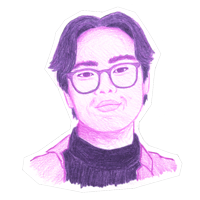
Located in Vancouver, Chloe Nguyễn has been the coordinator of Climate Education Reform BC since its inception in 2021, a grassroots, student-led organization with the mandate to implement an intersectional climate crisis education for all. A senior in high school, Nguyễn is a Loran Scholarship semi-finalist. Interested in climate education and ensuring that all young people are exposed to information about the climate crisis, Nguyễn attended a special program in her high school that focused on leadership and environmental stewardship. Talking to her fellow students outside of this program made her realize how big the gap is between what youth are learning in schools and what information should be accessible to them to inspire action on climate change.
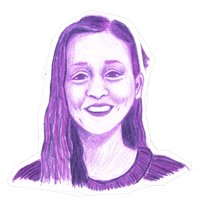
Teegan Walshe became involved with the fight for climate action in 2021, the year BC experienced a record-breaking heat dome. Located in Qualicum Beach, Walshe began striking in front of the town hall on Fridays as part of the Fridays for Futures global movement. Teegan has presented to council, collaborated with their local MPs and generally worked at holding bureaucracy accountable. The Fridays protests have brought her into contact with people with diverse views on the climate crisis and turned her into a thoughtful conversationalist and a true listener. She is a recipient of a the 2023 National Youth Climate Activism Award. Teegan focuses on forming connections and growing a broader movement.
Persist to Find Your Power
Getting started on your community energy project
In this episode of Down to You, we catch up with amazing young individuals from remote communities in BC to learn about their journeys of implementing sustainable energy solutions in their communities. Some of our guests embarked on their journeys with little or no prior experience in sustainable energy but they were driven by their dedication to climate action and their commitment to protecting the cultural and natural heritage of their surroundings. Reimagining the way we produce and distribute power could be one of the most radical actions our society can take to combat climate change. Through the eyes of Elijah Mecham in Bella Coola, as well as Mackenzie and Tristan Walker, and Gavin Anderson in Terrace, we experience the transformative steps they’ve undertaken and the invaluable support they’ve received on their path towards helping their communities transition to more sustainable energy solutions.
Episode Guests
- Elijah Mecham
- Step3Project
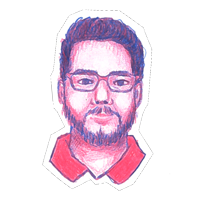
Elijah Mecham is a Clean Energy Coordinator at Nuxalk Nation in Bella Coola, BC. His role involves supporting his Nation to strategize and fund plans to help the community transition off diesel generators by 2030. Elijah is involved with the Indigenous Clean Energy (ICE) Network where he finds peer support for this important work he’s doing for his Nation. He has been involved with several different clean energy projects —including run of the river hydro generation, and solar installations, that have given him many opportunities to be at the forefront of just transition for First Nations communities in BC.
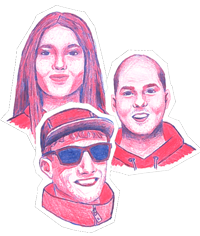
Mackenzie Walker, Tristan Walker, Gavin Anderson are the masterminds behind Step3Project, an apparel company with a mission to raise funds for sustainable energy projects at its core. One of Step3Project’s sustainable investment outcomes was a solar system for the Shames Mountain ski hill. With the support and engagement of Student Energy and community partners, this project showcased the power of individuals in our transition away from fossil fuels and the feasibility of small-scale regenerative energy models for remote communities in BC. Step3Project has also helped fund additional sustainable programs at Caledonia Greenhouse, Skeena Valley Golf Course and more!
Water: The Lifeblood of Our Planet
From watersheds to oceans, healthy water affects us all
Are you ready to dive into the story of oceans and water? Beyond being the critical component to all life and ecosystems on this planet, water can be a barometer for the health of a community, society and the effectiveness of our collective efforts toward climate action. In the second episode of Down to You, we speak with two avid conservation activists: Bodhi Patil, co-creator of Ocean Uprise, and Caio Krause Conradt, a high-school student, and a proud community and ocean protection volunteer. These youth share not only a clear passion for oceans, but they also both see water as a lifeblood of our planet that connects us all. What can we learn from the waters that surround us to better take care of ourselves and our planet? Tune in to find out.
Episode Guests
- Bodhi Patil
- Caio Conradt
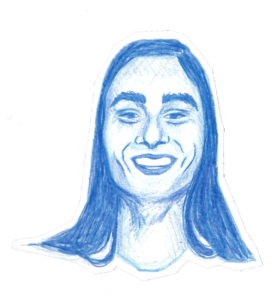
Bodhi Patil is an ocean climate solutionist who believes that in order to rebuild our ecosystems, we first need to prioritize inner resilience. As the co-creator of Ocean Uprise and the founder of Inner Light, an organization focused on planetary wellbeing, Bodhi is no stranger to the world of water. Raised and then residing on nearly all of the world’s oceans, he has been witness to both the beauty and perils of our world’s largest bodies of water. He is also a committed community organizer that has been recognized by the United Nations, Forbes, and the Jane Goodall Foundation (when he was in Grade 6!)
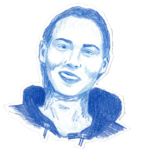
Originally from Brazil, Caio found his calling in conservation shortly after visiting the aquarium as a newcomer in Canada. Through the Youth to Sea program, and various other wildlife rescue organizations and volunteer opportunities, Caio shows his great care for the planet’s flora and fauna. He is deeply involved in his community and shoreline cleanups, where he enjoys engaging passers-by in conversations around plastic pollution and sustainability. An avid paddle boarder, hiker, and traveler, Caio is getting ready for his next chapter in life, doing his studies in biology at the Simon Fraser University.
Ocean Uprise is a creative activist community – by youth, for youth – where passionate young leaders from around the world come together to learn, connect and take action to protect our oceans.
Oceanwise: Youth to Sea Program is a hands-on learning program that endeavours to unite youth to make a difference towards ocean conservation.
Policy Framework for Blue Carbon Ecosystems facilitates alignment across global policy processes to enhance conservation, restoration and sustainable management of coastal ecosystems.
Coast First Nations Great Bear Initiative
Led by 15 First Nations, Canada and BC, the Great Bear Sea MPA network planning effort is breaking new ground in terms of Indigenous co-governance.
Canadian Ocean Literacy Coalition
Empowering Canadians to better understand, value, and care for the ocean
Watershed Moments Blue Ecology
Featuring Michael Blackstock, the Watershed Moments 2023 documentary showcases a free-flowing conversation with Brian Carruthers about Blue Ecology in action, with Richard Boase steering the process. Michael and Brian have direct experience in interweaving two cultures, Indigenous and Western. This makes the documentary relevant, timely and timeless.
The Future of Getting Around
Overcoming personal and structural barriers to sustainably getting around our communities
What does sustainable transport look like where you live? What steps can be taken to overcome barriers in access to sustainable transport, and how can youth empower themselves and improve their communities by advocating for changes to current transportation systems? In the first episode of the Down to You podcast, we connect with Paolo Bigit, an El Salvadorian videographer living in Kamloops, and Kyle Ross, a university student and community organizer in Prince George, who have challenged themselves to choose and model transportation methods that reduce carbon emissions in the car-centric cities where they live.
Episode Guests
- Paolo Bigit
- Kyle Ross
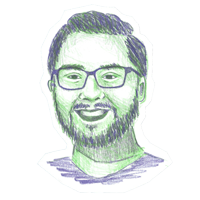
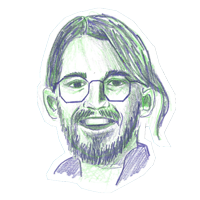
In Kyle’s community of Prince George, existing bike lanes pose a significant problem: the lack of physical barriers between cyclists and motor vehicle traffic makes the dedicated lanes feel too unsafe to use. What started as a summer project to petition the community for safety improvements quickly grew into a much larger research study that ended in a successful appeal to City Council. Kyle’s research shows that around 50% of current car users would switch to bicycle commuting if the option becomes safer, which would result in less traffic, a decrease in annual emissions, a decrease in road maintenance costs and overall improved health within the community.
BC Cycling Coalition Podcast
Podcast hosted by Peter Ladner of the BC Cycling Coalition, where he chats with top supporters and experts from all over BC about climate change, getting around using bikes and walking, and the experiences and obstacles of cycling throughout the province.
Vision Zero (visionzerobc.ca)
Granting Program with goal to support local communities across BC that was established in 2021 from joint partnership of BC Injury Research and Prevention Unit, Government of BC, First Nations Health Authority and the five local health authorities. Applications open now! Closing January 15 th .
BC Cycling Coalition Safe Routes
Website to determine if your community has an Active Transportation plan. This initiative gathers information from communities across BC about current plan for walking and cycling. Focuses particularly on rural areas and small towns to create a map-based inventory of bike and pedestrian plans.
First Nations Low-Carbon Transportation Project
Outline of three-year project that seeks to accelerate opportunities for First Nations
Kyle’s Presentation to PG City Council
Kyles presentation to PG City Council
Kyle’s Petition
Kyle’s Petition
All about EV’s in BC FAQs – Emotive (emotivebc.ca)
Website covering everything you ever wanted to know about electric cars.
Meet the hosts
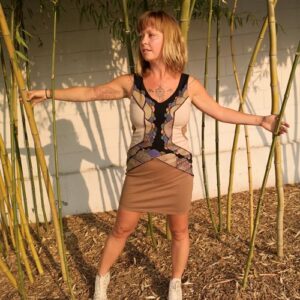
Hollis Nelson
Shared territory of musqueam squamish and tsleil-waututh
A hawk of some kind. I’d love to experience their perspective from high in the sky and with such amazing eyesight! They also experience exceptional hearing, with strong beaks and sharp talons that make them amazing hunters and foragers. And finally, the females are bigger than the males!
Thoughtful, creative, dedicated
We all have stories embedded in our being. Be patient, remain curious, hold space, and let the story tell itself.
My journey towards storytelling began in my childhood. I was homeschooled as a child and a lot of my upbringing involved art and make-believe. My dad always encouraged my dreams and my imaginations. For many years my dad and I would make books to give to people for the holiday season.
Together we would write and illustrate these stories as gifts for our loved ones. It was in this collaborative spirit that my storytelling journey began.
I would like to leave my listener with inspiration and hope, with vision and possibility, and with a firm belief in the coming of a better world.
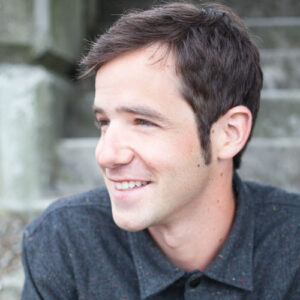
Alex Penney
Squamish/Musqueam/Tsleil Waututh
Tiger. There may be more creative answers, but I would just love to feel what it is like to be a tiger. Agility, awareness and grace in a world of speed, sound and scent. And napsin the sun.
Exploring, Inquiring, Enjoying
Listening is my philosophy. Everyone has something interesting to share.
My introduction to storytelling was through books, family stories, and music. I went on to study Philosophy, where I was drawn to aphorisms and fiction as forms that struck a chord with me. My life eventually led me to music and art, where I now create pieces based on narrative, sometimes in a roundabout way. I tend to tell stories through recording, collecting and collaging. I remix memories from my journey – from people I meet and places I go – to form a story and express an idea.
I would like to share perspectives with others and create more understanding among people and the planet. Sharing stories inspires insight into where we come from, where we are, and where we might be going.
